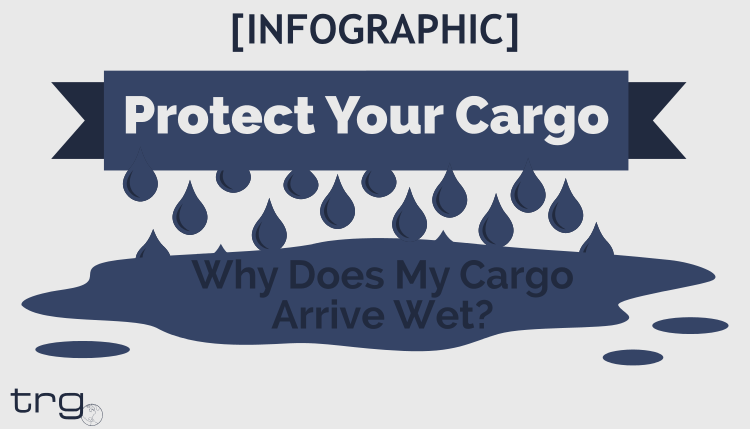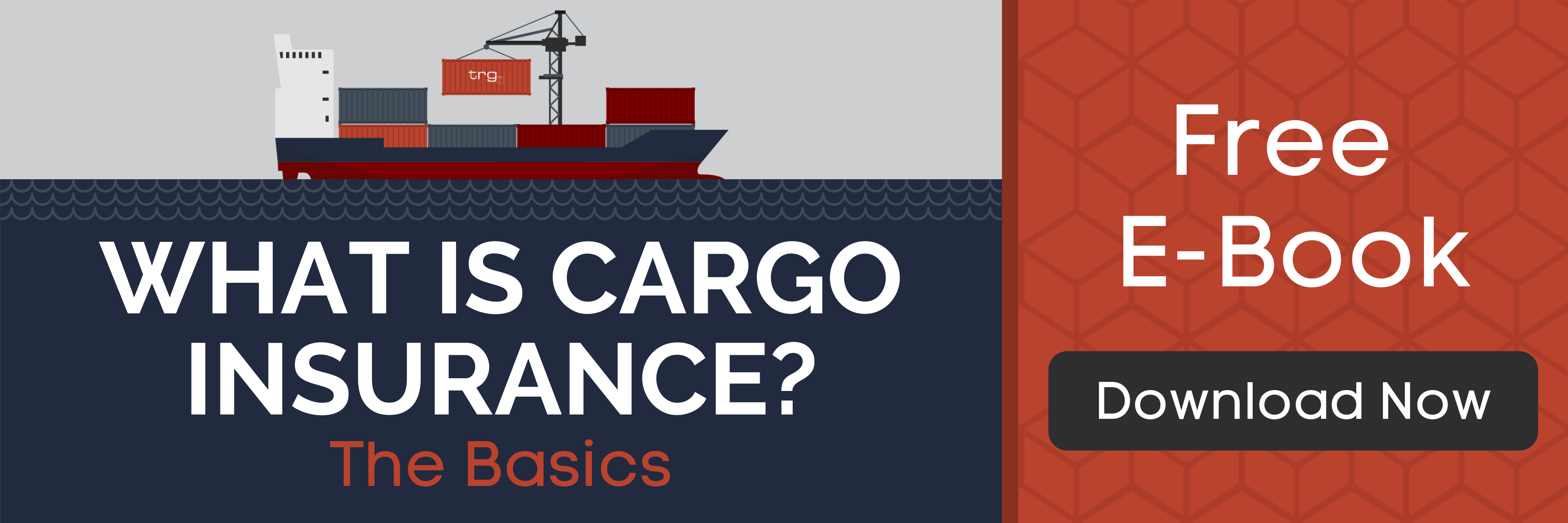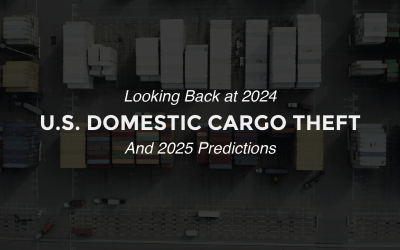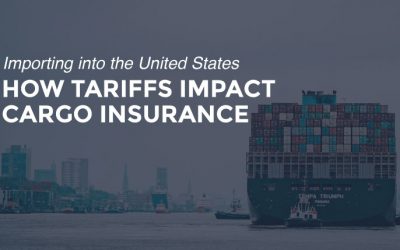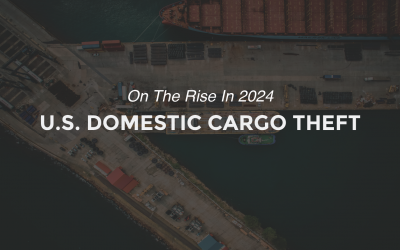Receiving water-damaged goods when importing can have a major impact on the wallet of the importer. Discover the causes of this type of damage and how you can protect your investment.
When shipping cargo through international supply chains, there are many potential dangers that can be encountered along the way. While some importers focus on the obvious dangers of cargo theft and container ship collisions, they do not consider the hidden threat of receiving water-damaged goods within a sealed shipping container.
With 10% of all container shipments discarded due to moisture-related damage, it becomes obvious that this is a larger issue than importers first realize.
How does Moisture Form within Shipping Containers?
Humidity from Loading Location
If your goods are loaded in a tropical location, such as Australia or Hong Kong, the increased moisture in the air will be held within the container creating condensation as the freight moves through different climates. This humidity can also increase the amount of water held by packing materials and dunnage.
Temperature Changes En Route
In addition to colder temperatures releasing moisture in the air from the loading location, changes in temperate during your supply chain can also result in water damaged goods. These temperature changes could also be caused by an unexpected cold front or even just the drop in temperature that comes with the transition from day to night.
As weather conditions fluctuate, the colder air is not able to hold the moisture accumulated during higher temperatures. As the moisture is released, condensation forms within the container resulting in container rain.
View the full infographic about Protecting your Cargo from Water Damage
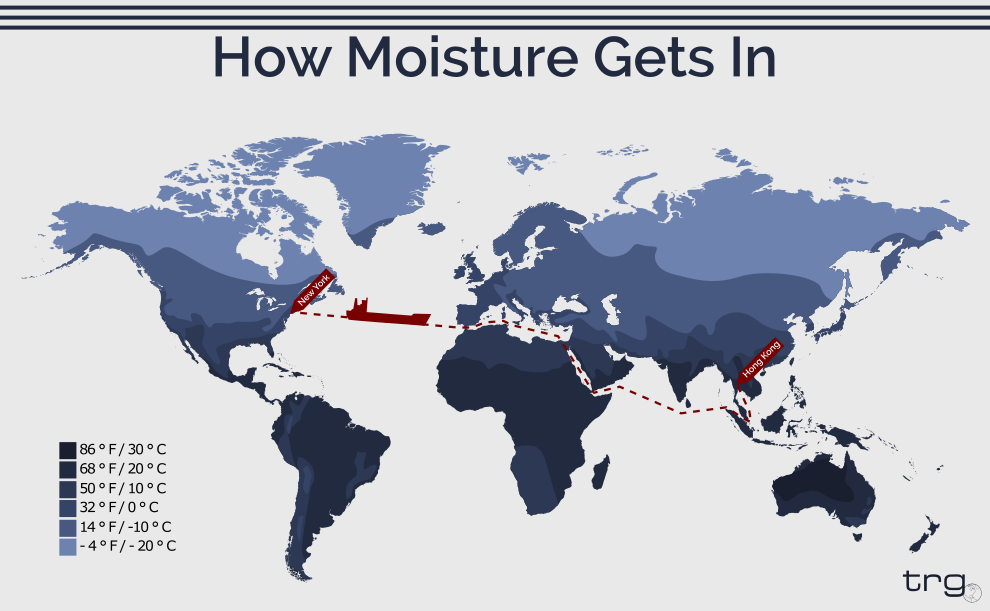
What is Container Rain?
Container rain, also known as container sweat, is the term used to describe the condensation that takes place within a sealed shipping container resulting in water damage to imported goods. Much like the water that accumulates on the outside of a cold drink as it sits in the sun, this water accumulates on the coldest parts inside the freight container. Since this is typically the walls and ceiling of the container, the moisture will ‘rain’ down on the goods resulting in water damaged goods.
Given that the temperature can fluctuate drastically from day to night, the container rain phenomenon can happen as often as every 24 hours during the journey of the supply chain.
How Can I Protect My Investment When Importing?
When water-damaged goods are received by the importer, it’s usually too late to salvage the items. In most cases, damaged goods must be destroyed. That is why the best way to protect your investment when importing goods is with a Marine Insurance Policy. Although you should always double check with your insurance provider, many insurers consider this a naturally occurring event that can be anticipated so it is often not covered. However, having a policy in place is still the best course of action.
To further protect yourself, do your due diligence before the container is loaded to ensure there are no leaks. Also, it is a great idea to have photos taken of your goods when they are packed and stowed. These can be given to your insurance provider in the event of a claim as proof the goods were packed in good condition.
Protect Your Cargo from Water Damage
Click the Image for a Full PDF

There are innumerable threats during the course of your supply chain, make sure you protect your goods and protect your investment to minimize any loss.

